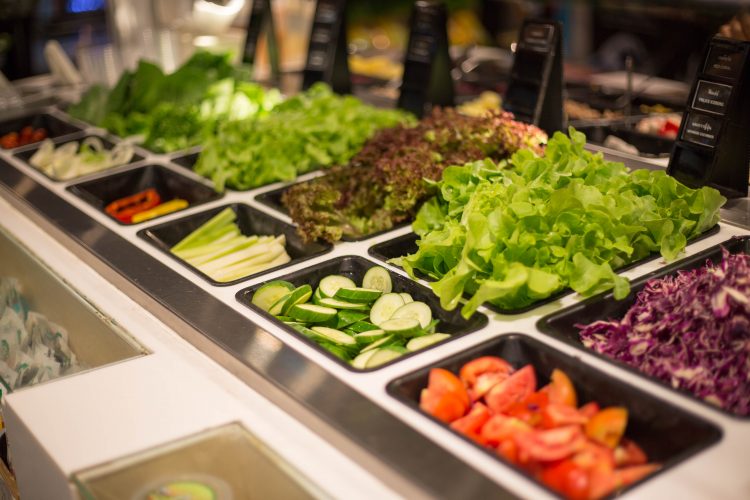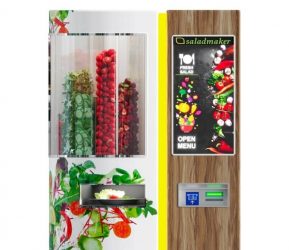Engineers develop robotic healthy fast food vending machine
- Like
- Digg
- Del
- Tumblr
- VKontakte
- Buffer
- Love This
- Odnoklassniki
- Meneame
- Blogger
- Amazon
- Yahoo Mail
- Gmail
- AOL
- Newsvine
- HackerNews
- Evernote
- MySpace
- Mail.ru
- Viadeo
- Line
- Comments
- Yummly
- SMS
- Viber
- Telegram
- Subscribe
- Skype
- Facebook Messenger
- Kakao
- LiveJournal
- Yammer
- Edgar
- Fintel
- Mix
- Instapaper
- Copy Link
Posted: 24 November 2021 | New Food Magazine | No comments yet
A Russian university has developed a robotic vending machine that could serve healthy meals to users, complete with its own ‘brain’ to remember user preferences.


National University Science and Technology (NUST) engineers, together with Karfidov Lab, have developed a working prototype of a vending machine for preparing healthy dishes. The engineers say the device cooks dishes from vegetables and cereals in 30-60 seconds, which are suitable for those who live a healthy lifestyle or suffer from allergies and other specific diseases.
Commissioned by the AFM private company, NUST MISIS engineers, together with the Karfidov Lab design bureau, have developed a prototype of the Salatomat vending machine. The device is loaded with 16 basic ingredients – vegetables, cereals, potatoes, noodles – and 20 dressings and toppings (sauces, cheese, nuts). With this set, Salatomat can cook up to 1000 different dishes, with the user able to create an individual combination of products.
“The process of cooking by the robot begins with the preparation of products – thermal and ultraviolet processing (for protection against microbes and viruses), cutting vegetables, stabilising the temperature (cooling or heating, depending on the dish),” said Aleksey Karfidov, head of the department of technological equipment engineering at NUST MISIS, co-founder and general designer of Karfidov Lab.


The prototype can make up to 500 meals a day
“This is followed by the dosage determination, packaging and dispensing. The cycle is completed by data fixation for further customer orders.”
According to the developers, the robot is able to ensure the availability, safety and hygiene of components, quick preparation and individual nutritional composition. The device will also be completely non-contact – all cooking processes are carried out without human intervention.
All ingredients inside Salatomat containers are pre-conditioned and loaded into hygienically sealed containers. Products can be stored in containers for a maximum of eight hours, and if not used, they must be disposed of. Cooking takes 30-60 seconds, so the robot can produce between 150 and 500 portions per day.
“The device has its own brain and memory. The intelligent module collects and stores data on taste preferences and medical indications and restrictions of each order. The container “knows” what is in it due to the RFID chip, ” added Aleksey Karfidov.
Related topics
Health & Nutrition, Research & development, retail, Technology & Innovation









